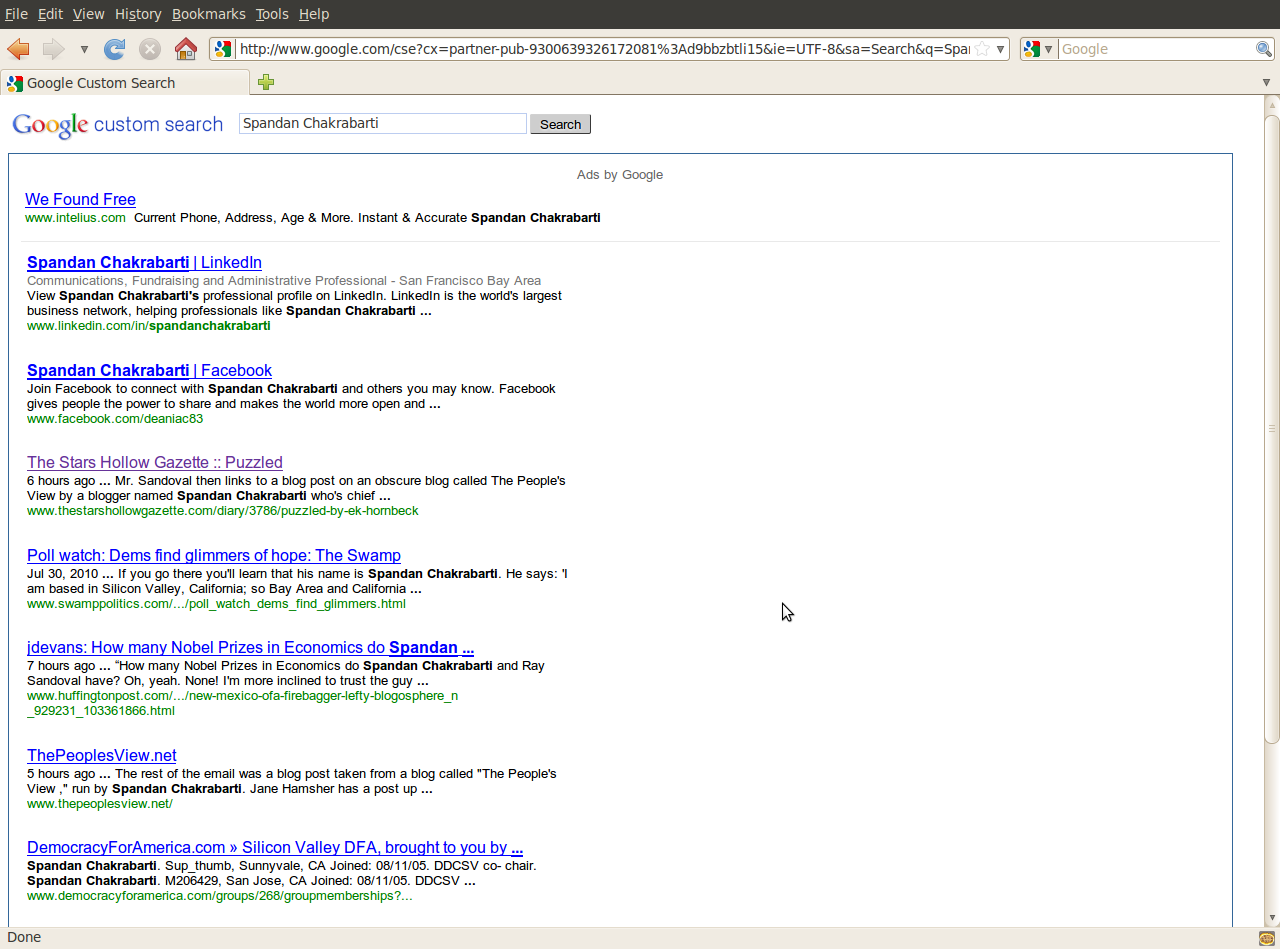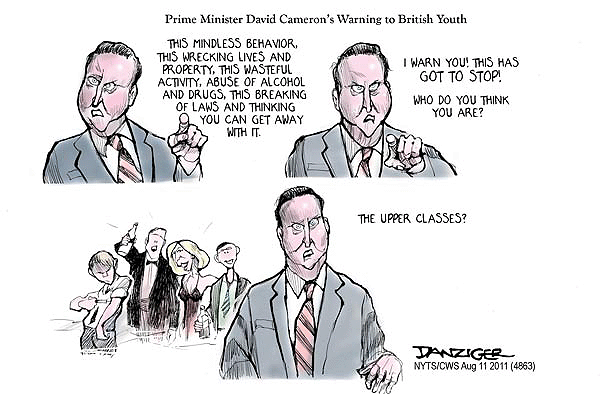“Punting the Pundits” is an Open Thread. It is a selection of editorials and opinions from around the news medium and the internet blogs. The intent is to provide a forum for your reactions and opinions, not just to the opinions presented, but to what ever you find important.
Thanks to ek hornbeck, click on the link and you can access all the past “Punting the Pundits”.
Robert Reich: How Austerity Is Ushering in a Global Recession
Not only is the United States slouching toward a double dip, but so is Europe. New data out today show even Europe’s strongest core economies – Germany, France, and the Netherlands – slowing to a crawl.
We’re on the cusp of a global recession.
Policy makers be warned: Austerity is the wrong medicine.
We all know about the weaknesses in Europe’s “periphery” – Greece, Ireland, Spain, Portugal, and Italy. But the drop in Europe’s core is dizzying.
Germany grew at an annualized rate of just half a percent last quarter, down from 5.5 percent in the first quarter of the year. France didn’t grow at all.
What’s going on in Europe’s core? Partly it’s a loss of confidence due to debt crises in the periphery. But that’s hardly all.
Robert Sheer: The Biggest Little Hypocrite in Texas
It is unfathomable that yet another Texas blowhard governor has emerged as a front-runner for the GOP presidential nomination. The persistent appeal of the mythology of Texas as a model for the nation defies the lessons of logic and experience, and yet here we are with Rick Perry, a George W. Bush look-alike, as a prime contender to once again run our nation into the ground.
To begin with, Texas is not and never will be a model for the nation unless the other states discover similarly rich deposits of oil and natural gas that account for one-third of jobs and supply 40 percent of tax revenues within those states. If Texas energy receipts and jobs helped float Gov. Bush’s reputation, they have been nothing short of miraculous for Perry’s tenure. The price of oil rose from $25 a barrel when Lt. Gov. Perry replaced the newly elected President Bush to $147 in 2008 and has stayed at more than $80 a barrel since, to the dismay of anyone who has to buy gasoline.
ABOUT 55,000 gallons of oil have escaped into the North Sea since last week from a leaky pipeline operated by Royal Dutch Shell, about 100 miles off Scotland.
Last year, Americans watched in mounting fury as the oil industry and the federal government struggled for five disastrous months to contain the much larger BP blowout in the Gulf of Mexico.
Now imagine the increased danger and difficulty of trying to cope with a similar debacle off Alaska’s northern coast, where waters are sealed by pack ice for eight months of each year, gales roil fog-shrouded seas with waves up to 20 feet high and the temperature, combined with the wind chill, feels like 10 degrees below zero by late September.
That’s the nightmare the Obama administration is inviting with its preliminary approval of a plan by Shell to drill four exploratory wells beginning next summer in the harsh and remote frontier of the Beaufort Sea, off the North Slope of Alaska.
New York Times Editorial: Wrong Answers in Britain
Nothing can justify or excuse the terrifying wave of violent lawlessness that swept through London and other British cities earlier this month. Hardworking people in struggling neighborhoods were its principal victims. Public support for racial and ethnic coexistence also suffered a damaging, and we fear lasting, blow.
The perpetrators must be punished, the police must improve their riot control techniques, and Prime Minister David Cameron’s government must do all it can to make such episodes less likely in the future. We are more confident about the first two happening than the third.
Mr. Cameron, a product of Britain’s upper classes and schools, has blamed the looting and burning on a compound of national moral decline, bad parenting and perverse inner-city subcultures.
William Pfaff: Assassination as Foreign Policy
Following the Second World War, people who had been involved with the American, British and other Allies’ “Jedburgh” teams supporting the European Resistance just before the Normandy landings, and the work of the British Special Operations Executive and the American Office of Strategic Services in Asia, were among those planning for the eventuality of a Soviet invasion of Western Europe.
We know now that this invasion never was a serious risk, either while Stalin was alive or after his death in 1953, but it was a threat that preoccupied governments in the West. Before the creation of NATO, a rudimentary “stay-behind” network of Europeans was developed to provide the nucleus for resistance following such an invasion. This was the work of the U.S. State Department-controlled Office of Policy Coordination, predecessor to the CIA, and British Intelligence’s MI9 department, which had run underground networks during the war. The U.S. part of the project was later assigned to the Defense Department. The operation was called “Gladio” (a Roman short sword) and remained secret until 1990. (In Italy and certain other countries, it had been corrupted by acquiring a right-wing conspiratorial political character.)
E. J. Dionne, Jr.: The GOP’s Summer of Discontent http://www.truthdig.com/report…
Mitt Romney’s presidential campaign is a cross between the Little Engine That Could and the big chain store fending off attacks from upstart rivals.
Romney gets little love from his fellow Republicans. He’s always confronting rumors spread by people who ought to support him that the existence of such a “weak field” will soon encourage new and better candidates to get in. The “weak field” line means they think Romney just doesn’t have it.
Yet Romney hangs on, methodically chipping away, avoiding mistakes and using his financial and organizational advantages to muscle his way through one month after another.
Sam Pizzigati: Doing Debt Ceiling Battle the FDR Way
At times of national fiscal crisis, President Franklin Roosevelt ever so firmly believed, you don’t give the awesomely affluent a free pass. You pound them – and then you pound them some more.
Against a Congress where zealously rich people-friendly conservatives hold the upper hand, how much can a President of the United States committed to greater equality realistically hope to accomplish?
The answer from today’s White House: not much. Advocacy for equality has to take a backseat, Obama administration insiders insist, once fanatical friends of the fortunate in Congress recklessly put at risk our nation’s full faith and credit.
But history offers another alternative. Back in 1943, halfway through World War II, a President of the United States confronted a debt ceiling crisis eerily similar to our own. That President, Franklin Roosevelt, faced a congressional opposition to inconveniencing the rich – with higher taxes – every bit
David Bromwich: Symptoms of the Bush-Obama Presidency http://www.tomdispatch.com/pos…
The Saved and the Sacked
Is it too soon to speak of the Bush-Obama presidency?
The record shows impressive continuities between the two administrations, and nowhere more than in the policy of “force projection” in the Arab world. With one war half-ended in Iraq, but another doubled in size and stretching across borders in Afghanistan; with an expanded program of drone killings and black-ops assassinations, the latter glorified in special ceremonies of thanksgiving (as they never were under Bush); with the number of prisoners at Guantanamo having decreased, but some now slated for permanent detention; with the repeated invocation of “state secrets” to protect the government from charges of war crimes; with the Patriot Act renewed and its most dubious provisions left intact — the Bush-Obama presidency has sufficient self-coherence to be considered a historical entity with a life of its own.
The significance of this development has been veiled in recent mainstream coverage of the national security state and our larger and smaller wars. Back in 2005-2006, when the Iraqi insurgency refused to die down and what had been presented as “sectarian feuding” began to look like a war of national liberation against an occupying power, the American press exhibited an uncommon critical acuteness. But Washington’s embrace of “the surge” in Iraq in 2007 took that war off the front page, and it — along with the Afghan War — has returned only occasionally in the four years since.

 We were all having a good inter-blog chuckle reading the reactions to an
We were all having a good inter-blog chuckle reading the reactions to an 
 It took 70 years of struggle by women of the Suffrage Movement headed by Susan B. Anthony to get this amendment passed.
It took 70 years of struggle by women of the Suffrage Movement headed by Susan B. Anthony to get this amendment passed. 
 I keep hearing comparisons between the London riots and riots in other European cities-window smashing in Athens or car bonfires in Paris. And there are parallels, to be sure: a spark set by police violence, a generation that feels forgotten.
I keep hearing comparisons between the London riots and riots in other European cities-window smashing in Athens or car bonfires in Paris. And there are parallels, to be sure: a spark set by police violence, a generation that feels forgotten.
Recent Comments